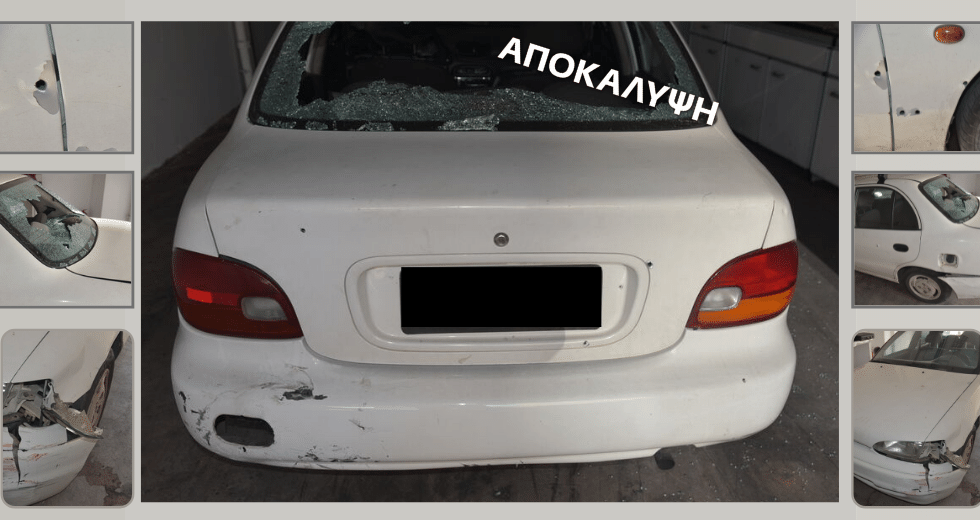
The premature release and destruction of the vehicle in the case of the killing of Nikos Sampanis by police officers



On the evening of Friday, October 22, 2021, police officers engaged in the pursuit of a suspected stolen vehicle through a residential area whose passengers, of Roma origin, refused to stop at a police checkpoint. Police shot at the car 36 times, killing one of the three occupants of the vehicle and injuring another, with the third initially escaping arrest.
The narrative of the incident provided by the police officers did not appear to completely correspond to other evidence recovered, such as video footage, expert analysis and DNA recovered from the scene (see more on the specifics of the case here).
These inconsistencies certainly won’t be resolved through further examination of the vehicle, however, as just three days later the police returned the stolen vehicle to its owner, who submitted it for recycling. The investigator did not appear aware of either of these events. Only after testimony from the owner of the vehicle on November 25 were these facts announced. The victim’s family pursued information about the fate of the car, only to discover it had already been destroyed.

(source: https://www.efsyn.gr/ellada/dikaiosyni/324863_katastrafike-basiko-peistirio-toy-egklimatos)
Further forensic study of the car could have provided more information and clarified events, and as such the return of the vehicle by police was certainly premature and possibly unlawful.
The procedure for the seizure (and subsequent return) of items related in some way to a criminal act is of course usually somewhat different than the procedure followed in this case. Indicatively, in the case of the murder of Pavlos Fyssas (2013) the car with which the perpetrator went to the crime scene has not yet (2021) been returned to the perpetrator’s sister, to whom it belongs.
In a state governed by the rule of law, the penal system, the judiciary and the investigating authorities must seek and obtain the evidence necessary to investigate a criminal offense and to seek the truth.
The return of the stolen vehicle in which 18-year-old Nikos Sampanis was killed just a few days after the incident and whilst investigations are still in the “initial stage” can only raise concerns and questions. These concerns are exacerbated by the fact that the vehicle was returned by an authority in which the alleged perpetrators work.
The existence of such doubts and suspicions violate the rights of victims and irreparably affect citizens’ trust in criminal justice, as well as the essence of the rule of law.
Bank Account number: 1100 0232 0016 560
IBAN: GR56 0140 1100 1100 0232 0016 560
BIC: CRBAGRAA
![]()
In a time where the very foundations of democracy are gradually being eroded by the rise of extreme nationalism, alt-right movements, the spread of disinformation and corporate capture, the efforts of organisations such as Vouliwatch are more relevant than ever.
We rely on the generosity of each and every one of you to continue with our efforts for more transparency and accounta
By financially supporting Vouliwatch you support our litigation strategy, our campaigns for transparency and accountability in the political system, the development of new civic tech tools, our research projects and last but not least our impartial and accurate